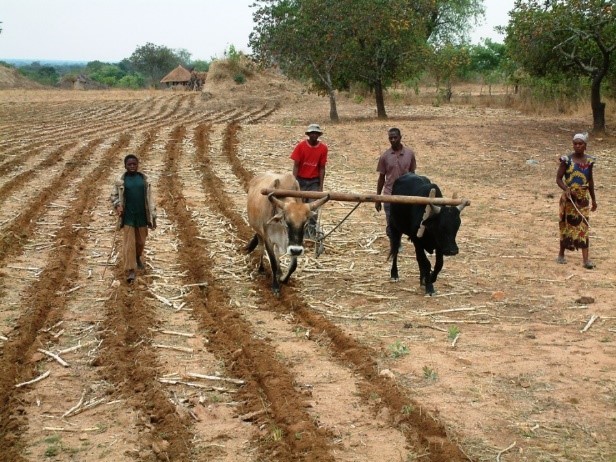Speeches Shim

In western Madagascar, maize and groundnut farming is booming. The two crops are key economic drivers in the Menabe region and demand is increasing at both national and international levels. As a result of these demands, the Menabe Antimena Protected Area is coming under increasing pressure from land conversion for farming. Unsustainable farming practices and land clearing fires are driving the destruction of the unique Menabe Antimena landscape, home to some of the last remaining dry forests of Madagascar, and directly threaten the biodiversity of the region.
USAID Mikajy is partnering with local communities and the National Cooperative Business Association (NCBA CLUSA) to promote conservation farming as a more lucrative and less environmentally damaging alternative for communities. Conservation farming is based on a set of environmentally friendly techniques and practices that help farmers to increase crop yields and improve soil condition over the long term to limit the need to regularly clear new fields.
Pilot activities targeted the villages facing the highest rates of forest clearing including Marofandilia, Kirindy and Lambokely. Farmers in the target communities had reported decreasing soil fertility and water retention, among other problems. Conservation farming directly addresses these concerns. Eight farmers from these initial sites agreed to act as model farmers for piloting the new practices. They received training in conservation farming using small farm equipment. Mere weeks after the initial training, these model farmers are already receiving requests for advice from neighbors and other members of their communities.
Other Menabe Antimena farmers are now asking for USAID Mikajy's support to extend the conservation farming pilots to their communities. USAID Mikajy is working closely with government authorities including the Regional Directorate for Environment and Sustainable Development (DREDD), the Regional Directorate for Agriculture (DRAEP), and local authorities as well as the delegated management authorities for the protected areas, to strengthen and expand the uptake of conservation farming as a sustainable solution for communities across the Menabe Region.

Comment
Make a general inquiry or suggest an improvement.